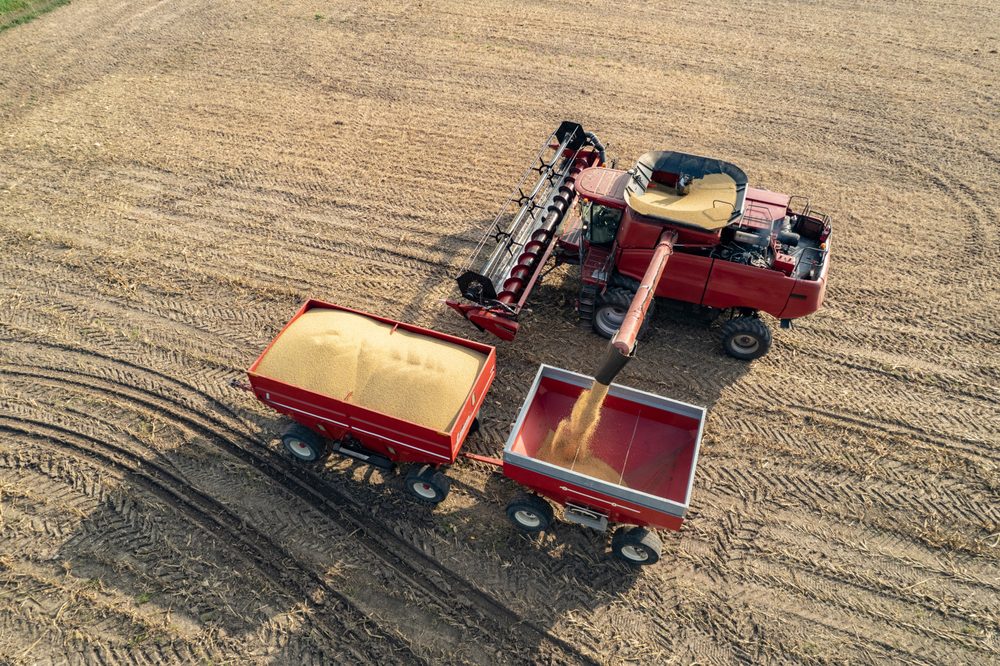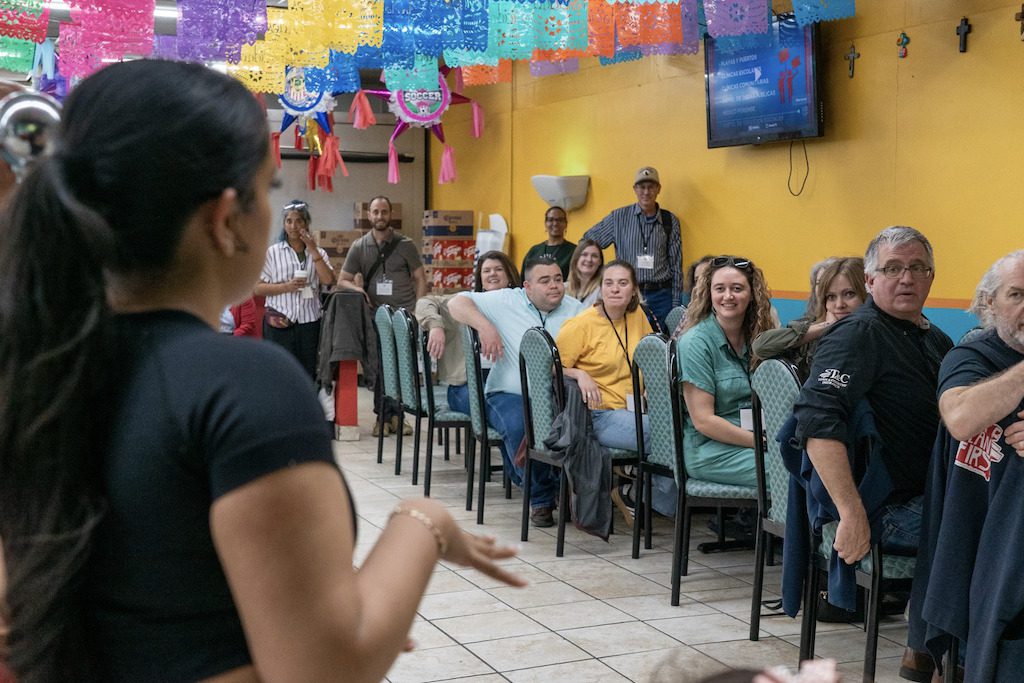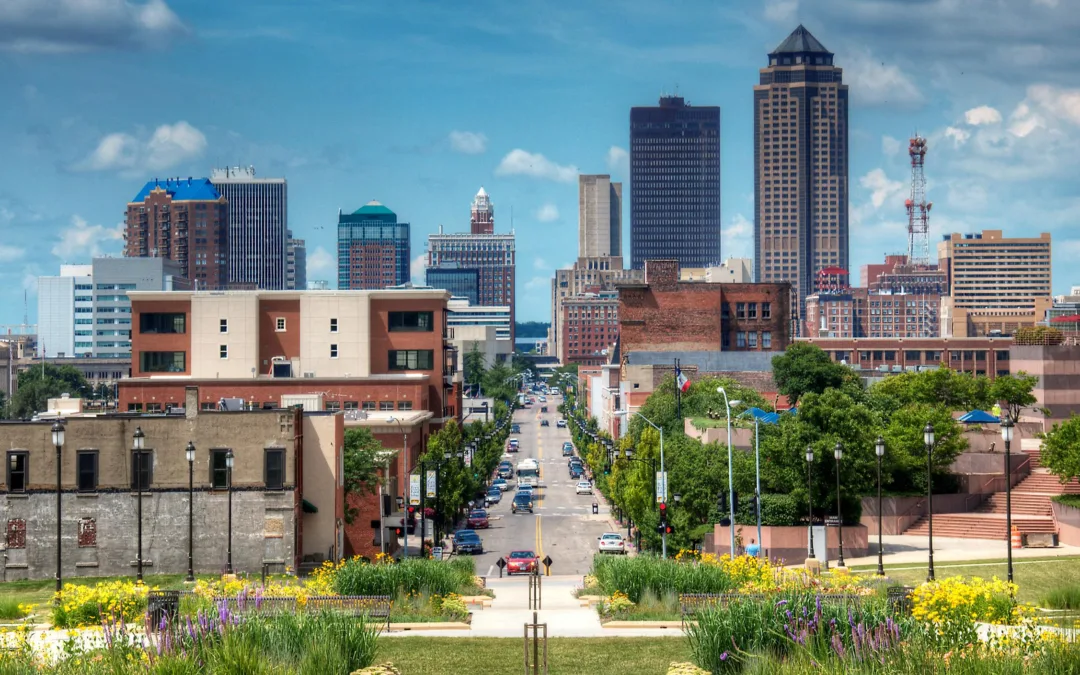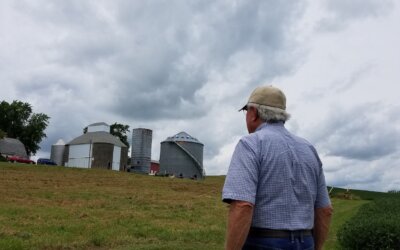
Photo: John Touscany/Shutterstock
Across the country, rural Americans are facing challenges that go far beyond headlines and statistics: An Appalachian woman whose life was saved by Medicaid worries that rural areas will be hit especially hard by federal health care cuts. Farmers in isolated communities fear that efforts to privatize the US Postal Service will leave them unable to receive medications by mail or return mail-in ballots. A family farmer laments the impact of an immigration raid on his small town’s economy and social fabric.
For millions living outside the nation’s big cities, these stories are the lived reality of political choices and shifting federal priorities.
In its 2025 Rural Policy Action Report, released this week as a “Roadmap to Rural Progress,” the Rural Democracy Initiative (RDI) makes it clear that these aren’t isolated struggles. They reflect a broader fight to ensure rural people aren’t left behind.
Federal policy hits rural Iowa hard—for better or for worse
In Marshalltown, residents have seen firsthand the effects of federal policy on small town life, and how communities can thrive when they unite to share support. When a 2020 windstorm ravaged the town, neighbors organized cleanups, cooked meals for affected families, and joined forces to ensure federal aid for disaster relief.
This wasn’t Marshalltown’s first foray into community chaos. In 2006, the local meatpacking plant—a leading employer in the area—was targeted by a massive immigration raid, which led to plummeting sales for local Latino businesses, reduced overall revenue from sales tax, and left community members reeling emotionally.
While many immigrants rebuilt businesses in the area and others were eventually released from federal custody, the scars of Marshalltown’s raid left a significant local impact.
“Marshalltown’s story presents a clear contrast of how federal policy can affect a community,” reads RDI’s report, explaining that such policy can “supercharge” the efforts of local organizers and everyday citizens or “cause immense disruption and send us backwards.”

The 2025 Rural Policy Action Summit assembled advocates in Marshalltown and Des Moines. (Rural Democracy Initiative, Contributed)
Signs of progress from 2021-2024
With contributions from dozens of local elected officials and rural organizations nationwide, RDI’s report includes a policy scorecard that highlights progress made since 2021 on policies that deliver for rural people. Between 2021-2022, positive investments were made in rural renewable energy, general economic development, farm conservation, and financial relief for farm families who faced discrimination from the USDA.
Progress continued, albeit more slowly, from 2023-2024. RDI details ballot initiatives aimed at ensuring paid sick leave and minimum wage for farm workers, “right to repair” rules that enable rural Americans to make repairs to their own property, and efforts to increase oversight for corporate meatpackers whose dominance threatens small farms.
A marked shift in 2025
Since the start of 2025, the report found that progress in rural policy has been significantly challenged and even halted by cuts and closures at the federal level.
The Trump administration has frozen programs and altered policy that directly affects rural communities, including ending rural infrastructure improvements, slashing support for programming that allows schools to purchase healthy food for students directly from local farmers, and removing safety regulations on corporations.
Cuts to Medicaid and shuttered rural hospitals, along with tax breaks for the wealthy and cuts to social programs like SNAP, disproportionately affect rural communities—a central concern for RDI. The Trump administration has also halted efforts for equity and diversity in the agricultural sector by dismantling programs meant to provide support for Black or Indigenous farmers, and they’ve invested billions of taxpayer dollars into detaining immigrants—many of whom work in rural communities.
From shared values to shared prosperity
In looking to the future with the hopes of improving rural communities, the 2025 RDI report suggests four pillars for reform: Reining in corporate greed, investing in foundational local infrastructure, supporting equity, and stewarding land and natural resources.
Rural Americans share the same values as most Americans: Safety and security for those they love, financial stability, and the promise of sustainable success for future generations.
For RDI, this looks like ensuring rural workers have fair and affordable access to health insurance, expanding credit and lending options so local businesses can thrive, and encouraging union involvement to secure jobsite safety.
It means prioritizing antitrust legislation that drives business back toward small farms, investing in renewable energy to protect public lands, extending broadband internet access, and increasing access to higher education or career training for young adults—just to name a few.
Rural impact extends beyond rural America
These policies are popular among rural voters, even in battleground states. A 2024 from RDI showed that 92% of likely rural voters in these states support essential funding for rural hospitals and pushing back against medication price gouging. 87% of those polled believe in protecting natural resources from corporate polluters, while 76% support requiring wealthy people to pay their fair share of taxes and help invest in support for working families.
Rural policy progress isn’t a radical idea—it’s a reflection of the people it supports.
A stronger rural America has ripple effects throughout the nation, both economically and socially. While rural communities are often neglected or even scapegoated by politicians, RDI points out that the US “runs on the work and innovation of working people.” By making space for rural interests in the policy-building process, the American economy can thrive “from the bottom up and middle out, not the top down.”

Rural America fights back: Iowa summit calls for fair funding, stronger communities
NEED TO KNOW: Rural leaders are organizing for change. A coalition from across the country met in Des Moines in April to address unique challenges...

Gwen Frisbie-Fulton: ‘The people closest to the problem are often the ones who can find the solution’
About two years ago, tents started to show up in my neighborhood along the creek beds and in small stands of trees. Most only became visible when...

A love letter to the working class, from Gwen Frisbie-Fulton
It started in the back seat of my family’s Jeep Cherokee, the one with the broken AC and vinyl seats that stuck to my thighs in the late summer...

Guest post: Elon Musk’s chainsaw comes for the farm
We can all agree that things should be efficient, but this is hardly that. This is chaos. March is finally here, and that means we’re chomping at...

Guest post: Stand against pipeline to protect Iowa’s natural resources
Iowa towns, farmland, and natural resources shouldn't be a playground for corporate power. I heard from fellow Iowa Citizens for Community...

Guest post: Forget Project 2025. We need a better Farm Bill
When it comes to farm policy in 2025, we don’t need Project 2025. We need a new Farm Bill that acknowledges the challenges we face, tackles them...




